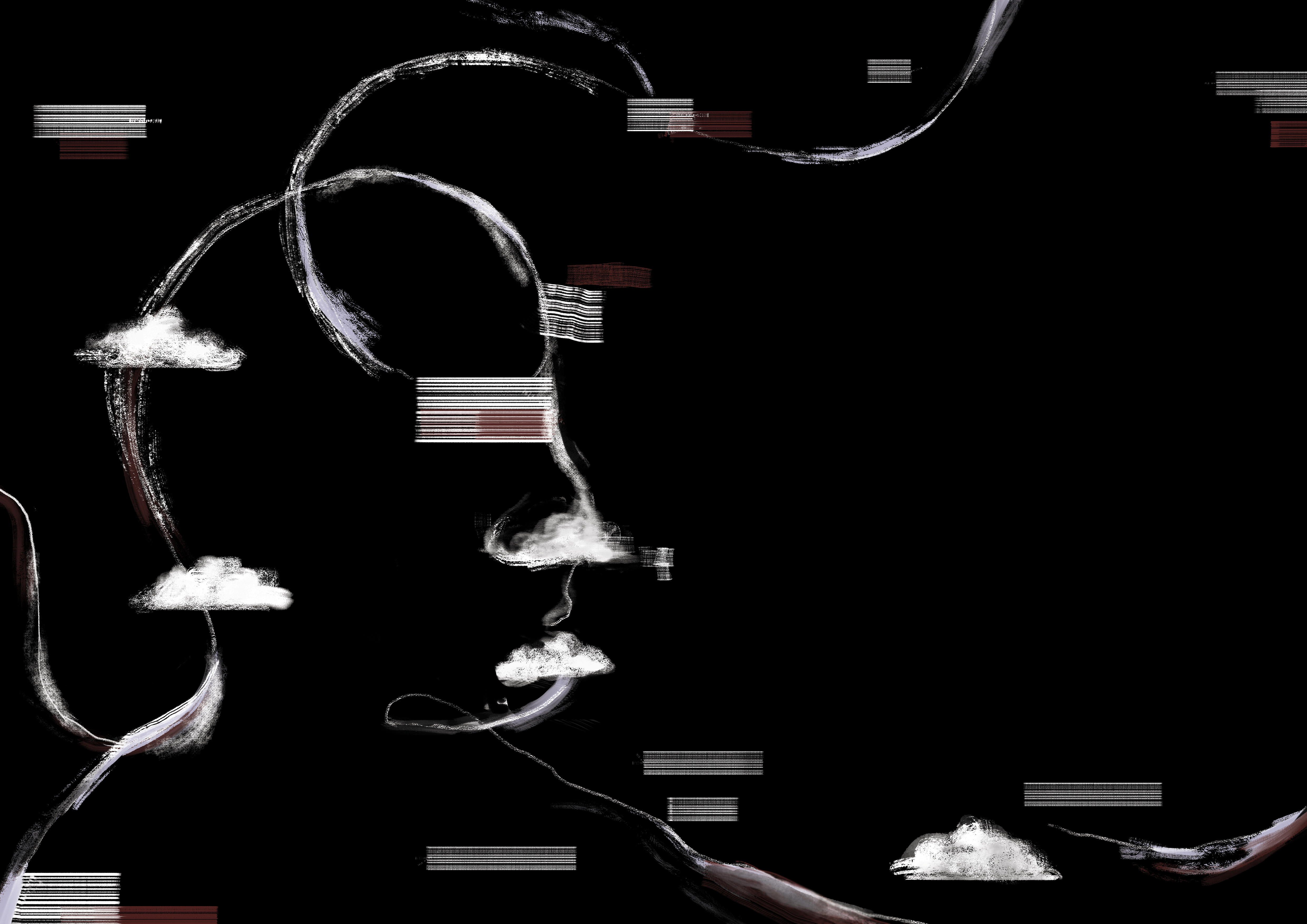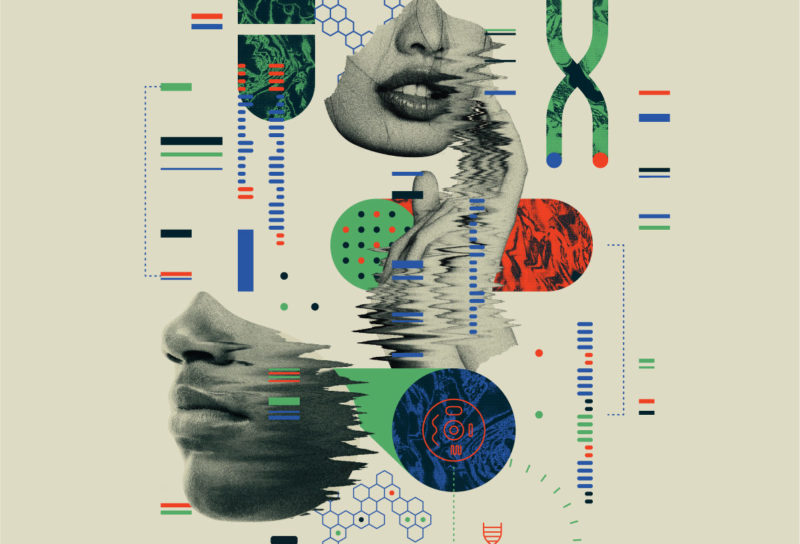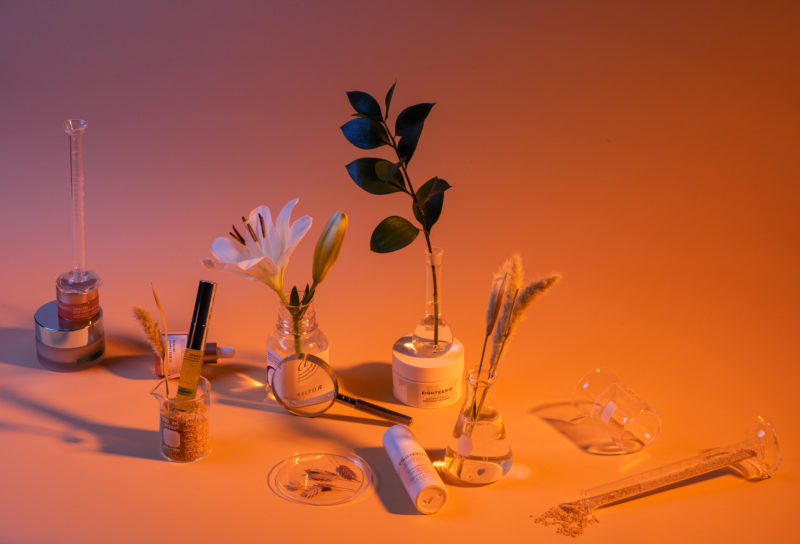The blackface virtual malfunctioned just as Alligator was about to leave to see the archivist.
“You deal with it,” said Bee, disappearing upstairs as the intercom buzzed. “I don’t want the tech to see me like this.”
Alligator didn’t want to see Bee like this either, panicked and tearful because of a broken toy. And now she would be late. Bee knew where she was going, or he knew abstractly that she sometimes went there, but they never discussed their love affairs in detail.
If the tech was surprised to see another black person in a home with a blackface virtual, he didn’t show any sign of it. The lightweight protective fabric of his inpatient uniform swirled around his body in the flow of air from the purifier above the door. He presented Alligator with a vintage iPad on which to confirm the job. Inside the house, he turned down offers of water, tea, food. With a flicker of shame, she remembered that outsourced inpatients were not permitted to eat or drink on the job.
They went into the living room where Bee spent hours every day in the blackface virtual.
“Everyone has these now, right?” Alligator said, showing the tech the mechanism. “My husband hardly uses it.”
The tech shrugged and rolled up a sleeve. His arm bore a keloid constellation of extraction marks. Alligator slowed her breath and made herself very still.
“They use the same plasma for immunity and the virtual?” she asked.
“Don’t make it your business,” said the tech, pleasantly enough, and fed blood into the mechanism. History as liquid body tumbled along the pseudoneural wires. The mask console flickered back to life.
She thanked him and showed him to the door.
“Black Eve,” he said as he was leaving.
“What?”
“The virtual doesn’t use plasma, it uses mitochondria. The Black Eve line, as in Adam and.” He flexed a hand as if preparing for an injection. “Flows right through.”
She waited until the security gate closed behind him to go back inside and call upstairs to Bee that the virtual was fixed. Then she left for her appointment.
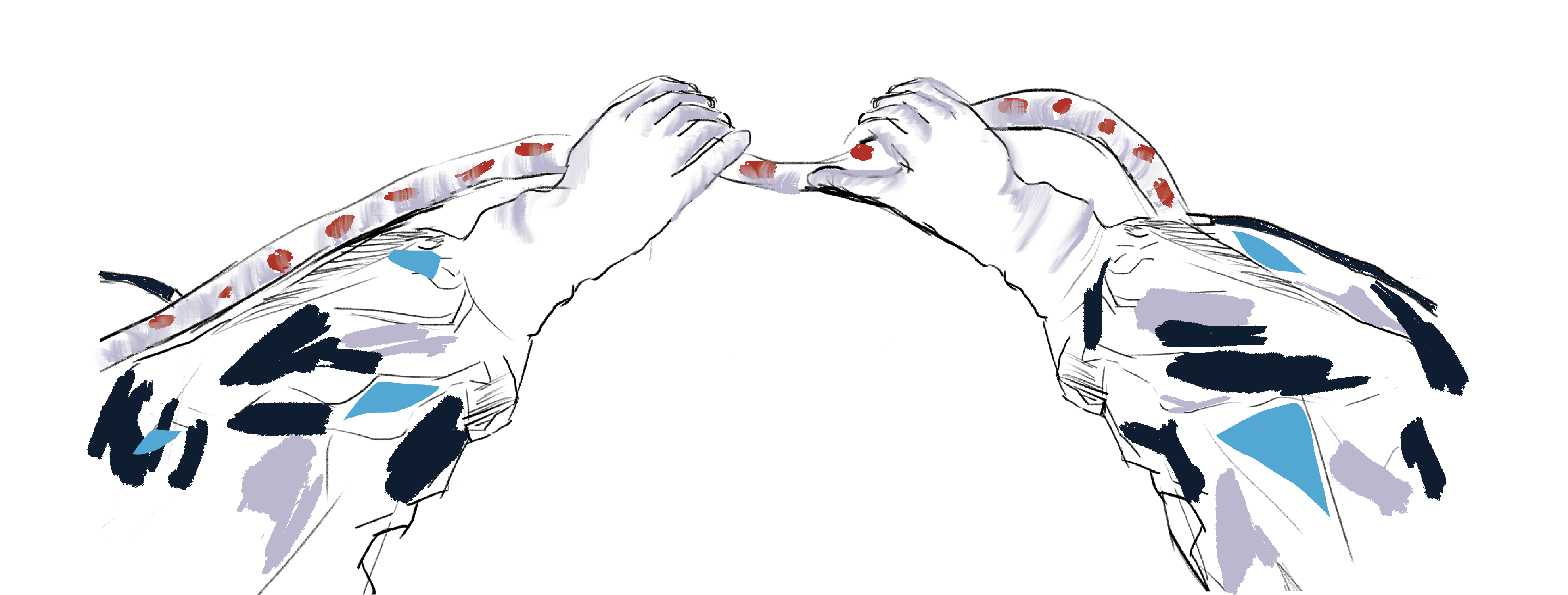
For the first year of their relationship, Alligator hadn’t been sure Bee was really himself: he had Bee’s distinctive way of speaking, but that could have meant anything. On their first anniversary he proved his identity to her by showing her his bank statements. He was beautiful that year; parts of his body were a simulation of the sky, before that was everywhere.
“I still get thousands of donations from my old voters. Nostalgia is a drug,” he said, pointing out the weird income spikes every fourth November. “Believe in me now?”
Alligator’s sense of Bee’s past remained hazy. She was too young to really remember elections, and he had changed his story so many times since then. All she knew was that he had run for president in 2040, that polls had turned in his favor just a few days before the election was voided, and that this had destroyed his last hopes of peaceful transition to communism via the electoral process, along with, she sometimes disloyally thought, his soul.
Eighteen years after they first met, Bee and Alligator still lived together in the clean city, but sometimes it was as though they lived apart. A fog had settled over their relationship, like the fog on bad days outside. Bee’s face remained popular, and royalties on it secured his wealth even after his power ebbed away. Now he spent most of his days zoned out in the blackface virtual, taking the mask off and coming up for air shaken, elated and horny every few hours. In there, he had been everyone who was anyone — Malcolm X, Tupac, LeBron — and some people who were no one, resurrected for the authentic urban grit of their obscure lives in the time before the reorganization of the cities. In the virtual, he had lived out on a plasma farm and had his blood extracted and sold away. He died daily of gun wounds, of excess plasma extraction, of complications from Covid-35, of a broken heart. He had even started to say things like, “Maybe I was black but forgot.”
“Don’t say that,” Alligator told him, every time. “Everyone says that.”
Technically it was possible, because Bee had tuned and curated his memories so often that he could have begun anywhere. He had had his memories completely altered early on in his political career, adding a voter-friendly period of resistance in the north and, later, as his political horizons contracted and swerved right, a tour in the military. But most of those in the clean city who claimed to have been born into the blood were just kidding themselves. The majority of black-born people lived out on the blood plasma farms, and never left, and those few who got out rarely curated all their memories away.
Alligator, for example. She spoke in an impeccably clean accent, now, with only a little esophageal molding, but she came from a plasma farm near the clean city. When she noticed a clean women wearing a Type O bracelet, she wondered if they had ever received her mother’s blood. Born beautiful through random luck, Alligator had been spotted as a model and brought over the tree-line and the quarantine wall. They cast her face in premium flesh: soon thousands were wearing it.
She was unusual for a high-income individual in that she had fully natural memories. Her fans imagined she had stayed natural because her early life had been happy. Her facetune became more and more popular because of this.
For a while, bothered by seeing herself in the street, she had tuned to resemble a vintage Brazzers star from the 2020s. But it felt too weird to have her natural memories and look in the mirror, or down at her body, at someone not herself. She had picked the star because she had imagined that the gorgeous body would renew her sexual confidence. But it made her sex life with Bee feel sterile and strange, for a while, until she went back to her birth tune. Later, their sex became arid again, but this time because they were no longer in love. She thought Bee stayed with her out of habit. He loved her natural face.
Most people ended up having their memories curated after they tuned, simply because the dissonance bothered them. To inhabit a beautiful body correctly, you had to forget you had ever been ugly. In theory it was optional, but the Therapist-in-Chief strongly recommended and in many cases mandated sloughing off ugly memories to do your part to keep New York City the most beautiful nation in the world.
Patriotism aside, memory curation took sensitivity and sometimes there were mistakes. For a time, it was fashionable among the rich to curate the memories of poor people into their experience. They hoped the remembered emotions of poverty would give them a new appreciation of the wealth they took for granted. That turned out to be an error, from their families’ point of view, because some of them started giving away their money to the people of the blood. These adventurous children of the rich were rounded up and their memories of poverty curated away. After that you weren’t allowed to remember anything lower income than you were born.
For a while, it was considered chic to be ugly, because it didn’t really matter what anyone looked like. Tuning was a free-for-all no matter what the therapeutic guidelines said, but memory curation was far more strictly regulated. Though Alligator had styled her natural memory as an adorable personal quirk, it still made her suspicious in the eyes of the Committee. She was strongly advised to go to the Lower Manhattan Oral History Project once a week and be subjected to memory collection. At first the regime of interviews and interventions was hard; they treated her almost as brutally as anyone else who chose to remember unassisted, despite her status as a full citizen of the clean city. Still it could have been much worse: she remembered, to a fault, that in the blood farms there was no pretense of an archive.
After a few months, she seduced an archivist, using the skill her first body endowed her with, the closeness to herself that people sometimes referred to as the rush of first feeling. Since then, she had done pretty much what she liked. The archivist only pretended to interview her; instead they talked, as if they knew each other in another world. His real name was Duck. After a year or so, she had begun making occasional visits to his home, a treehouse in the cloned redwoods with a creaking outside elevator. At night you could glimpse the lights of the quarantine and, more dimly, the plasma farms beyond.
Today she was visiting in daylight, an unusual pleasure.
“You’re late,” Duck said. “Not that I was just sitting here pining for you.”
“Bee’s virtual broke down. He can’t go a single day without it.”
“Not that I was looking out the window counting the minutes.”
She pulled away from his embrace. “The repair tech looked familiar. I remembered who he was on the way over here — a cousin from the farm, my aunt Cactus’ kid. I wish I could remember his name.”
“Did he recognize you?” asked Duck, gently.
“If he did, he didn’t want me to know.” She shook her head as if ridding herself of a memory. “I’m sorry,” she said. “Let’s talk about something else.”
Duck’s neighborhood was informally known as California, a joke from the hectic era of Bee’s heyday, when the giant tree cloning program was just starting and X-USA’s fragmentation was fresh enough to need humor. He was the third archivist Alligator had been assigned, and from the beginning she appreciated how bad he was at his job. It was easy to make him like her because, once she got her disgust at his uniform under control, she found him attractive. He had kept most of his birth body. It had been a while since she had been with someone like that. Bee loved to be creative with his body and face; for a month or two he tuned to the turn-of-the-century movie star Angelina Jolie, because he wanted their relationship to feel more lesbian, and for a whole year he was an animal from a Disney movie, because he wanted to feel less. When Alligator was more in love with him she found it fun and freeing, how lightly he held the idea of his body. He was so different from her, with her one-time, failed experiment in tuning. Later, this made her feel lonely.
She had discovered early on that Duck also had fully natural memories, because his mother had died when he was young and he was worried that any alterations would snuff out the handful of recollections he had of her. Even though Alligator still believed that all archivists were bastards, AAAB, trust had developed between them. Duck had also grown up on a blood farm, though a nicer one than hers, mostly poor white people. They recruited archivists, mass therapists, and plasma police from there. It was not the kind of place where anyone would choose to keep their memories for ideological reasons, but his had survived his culture because of his strong attachment to his mother.
They lay in Duck’s bed, listening to the artificial birds. “I try not to let the virtual bother me,” she said, picking up the thread of the subject hours later as if touching a wounded place. “Would it work if I put my own blood inside? What would Bee see?”
“I don’t know how it works,” said Duck. “Why do you keep your natural memories?” he asked, suddenly.
This was the ostensible subject of their interrogations, but they avoided it there and in their chosen time together. She answered simply and truthfully. “I want to remember what it was like on the farms.”
“That’s what terrorists do: preserve childhood to cultivate a negative attitude,” he said. It was confusing because he spoke, though ironically, in his oral history voice, but with a hand caressing her thigh.
“You’re a good student of some real bullshit,” she said. “I keep my memories because I like them. I liked how it was there.”
Life in the plasma farms was hazy and slow. The children moved around softly and played quietly so as not to disturb the sick and dying. She had only realized it was special when she had been taken out of there to work as a model, and witnessed how loud clean children were. It seemed to her that they were always yelling and stomping. By now, almost 20 years since she relocated to the clean city, she had acclimatized and accepted it was normal to slam dishes into a dishwasher and talk loudly on the phone. Still sometimes she herself spoke in a whisper, and people had to lean closer to hear, so close she could hear the whirr of the purified air filtering in through their masks. Every conversation was like pressing an ear to a shell.
“Wasn’t it like that where you lived?” she wondered out loud, wanting to share the pleasure of reminiscing with Duck. “All the lamps draped in colored fabrics to mute the light, and always someone sleeping, and the smell of weed everywhere? Always someone napping, always someone crying, always someone describing how the world had done us wrong. Wasn’t it something like that for you, too?”
The stories Duck told her about his past all revolved around his mother, whom he revered and could hardly remember. She had been in the habit of tuning to a man’s face, with a soft beard and kind eyes. Apart from his mother’s towering and probably partly imaginary love, he had had the usual hard life of the blood, passed around aunts and uncles as they died one by one. In the years they had been seeing each other, she had always listened to his stories patiently, as she had to, but only occasionally did she allow herself to feel truly curious about his life.
He was silent for a while, searching himself for his childhood.
He said, “I mostly remember sirens.”
“Oh, the sirens!” She thought for a while of how the sirens regularly pierced the sleepy fog of the farm, and after they had come and gone there would always be some new disruption.
“It’s true,” she concluded, “I seem to kind of edit the sirens out of my memories.”
“Why not get those parts removed? Just one pass over the bad memories. Then you’ll never have to see me again,” he said, smiling because he knew that she would not choose to forget the part of herself that wanted to see him.
“I want to lose things for my own reasons,” she said.
She looked at him closely: his body was mostly natural, with the regulation oral history musculature to maximize running and beating, and its innate light covering of very dark hair. She liked the birthmark at his throat, which he assured her he had truly been born with.
“Where I grew up, they talked more about heroes and sacrifice,” he said, slowly. “In our rooms the light was the regular color.”
“Do you like the memories?” she asked.
A long silence. “People I love are in them,” he said.
Thinking of Bee, she realized it was getting late and she had to go home. The remembered sound of sirens resonated in their last kisses before she went to the security gate to await her car. If she could have stayed, perhaps she would have remembered more and more — not like the torrent of sensation people described while getting curated, but a slow flowering.
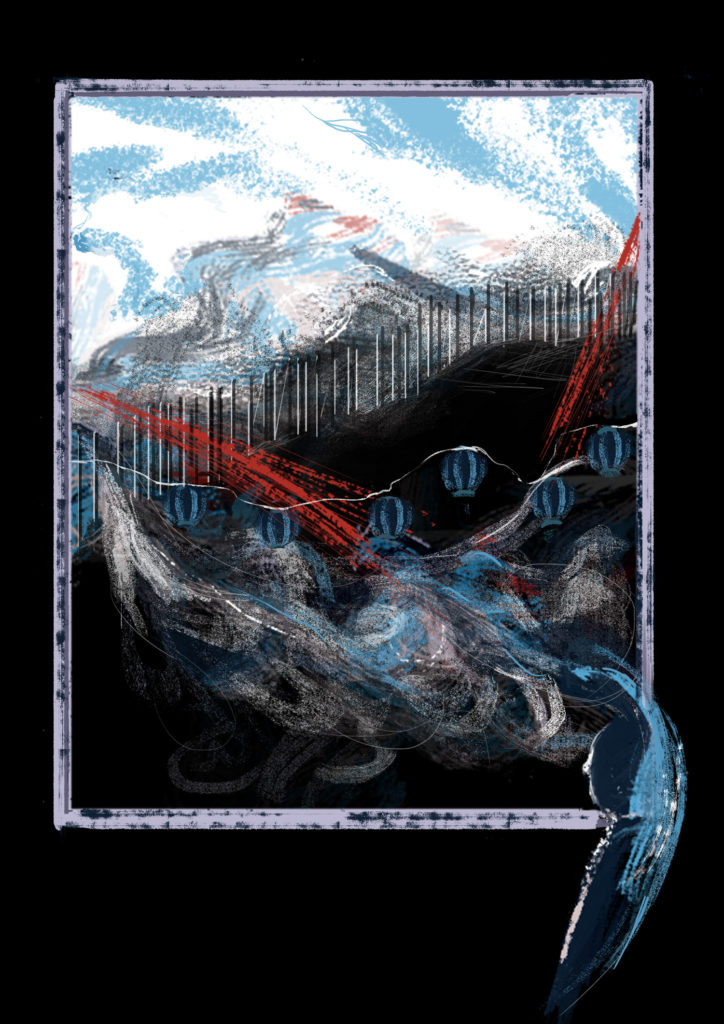
At home, Bee was in the kitchen. It was unusual for him to be out of the blackface virtual at this time of evening. She thought guiltily that maybe he had understood that her feelings about the archivist, once sexual but practical, had become more loving. Despite his fame, Bee could be as competitive with other men as an insecure boy. But something other than Duck was on his mind.
“Why didn’t you tell me the way you went back to yourself?” he asked.
No one but Alligator knew the way she had returned to her first face.
She had told Bee it was a delicate reversal surgery worth millions of yuan, but it was not true. In fact she had gone to one of the trashy parlors downtown and bought a knock-off version of her popular original. Now she felt convinced that the violence she had done to herself was born from her repressed desire to leave Bee. Because she felt guilty about this, she could not defend herself against his anger.
She had made the off-brand, low-quality face her own, knowing better than anyone how to live in it, her memories and self perfectly pre-tuned to it. Bee had not noticed until now. Despite his ever-changing body, he had taken pleasure in her permanence. He was angry because she had witnessed him taking pleasure in a lie.
“I saw it in the virtual!” His eyes brimmed with tears. He always cried when he was frustrated or confused; he owed his long-ago political success to his near-infantile powers of self-expression. “I don’t know how the fuck it happened, but I saw it.”
“Black Eve!” she said, momentarily delighted in spite of herself and the situation.
“What the fuck, Alligator!” His voice was slurred, with a slight blaccent; he had been drinking in real life while virtually embodied as the black men of his dreams. “You act like you’re better than me, with your real skin.” Oh, she thought to herself, so that is what this is going to be about. He envied her her many black mothers, dying one by one by one, softly and gently, on the plasma farms.
“I reported you,” he said. “Not at the precinct — I know you see that guy. I went to the top.”
“You do as you see fit.” Every utterance she made at home was coated in a syntactical input called DRAMA/LIT_247, a 40s Amazon classic from the era of Bee’s election campaign and one of the few luxury augmentations she treated herself to, supposedly to make him feel more comfortable but also because she found talking to her husband tedious.
“You laminate your thoughts like a fucking robot! I hope you’re in therapy for years and years.” He threw the glass he was holding on the ground, and cried out in anguish, like a little clean kid, as it failed to smash.
She thought about the therapy camps. The inpatients tended to the clean city, wrapped in voluminous plastic scrubs that morphed and billowed around their bodies, fixing potholes or planting trees along the line of copied redwoods that kept the plasma farms out of sight. All you could see of them were their tired brown eyes. She remembered a friend on the farm who had come back from inside with the whites of his eyes permanently red. Her mother’s people kept their scars, as proud sometimes of them as the rich were of their noses copied from statues, their eyes copied from oceans.
“Elephant,” she whispered, finally remembering the repair tech’s name.
All her life she had cultivated slowness. It wasn’t that you didn’t feel hasty, or hungry; it was that you moved like a leaf unfolding through the hunger and haste of your thoughts. She visualized the red-lit rooms of her childhood, her mother and all the others singing or coughing under a light fog of smoke. Whether she wore her first face or another’s, there was nothing in the present that could cause her any pain.
This story is in Grow’s second annual print issue. To read it in print, and other great pieces, order our Beauty Issue now.
